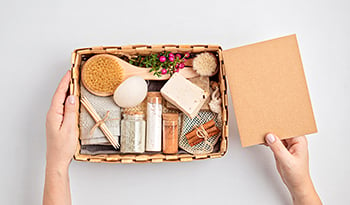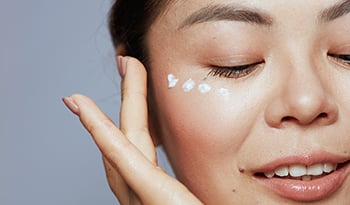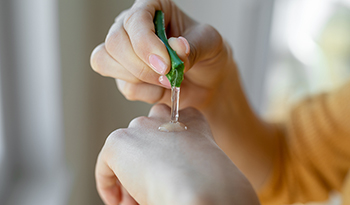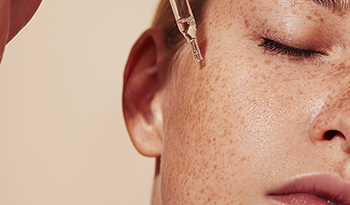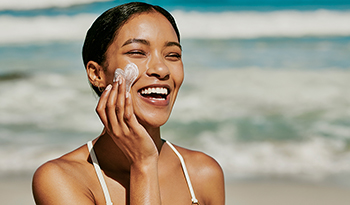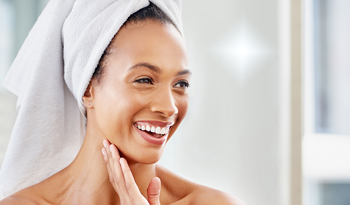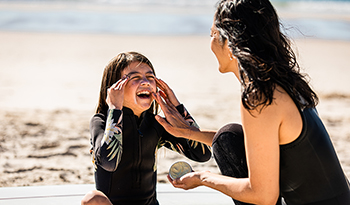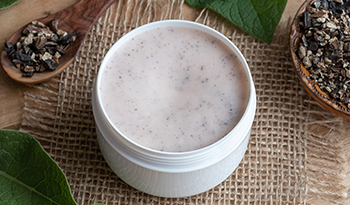Retinolo: Il Santo Graal anti-età
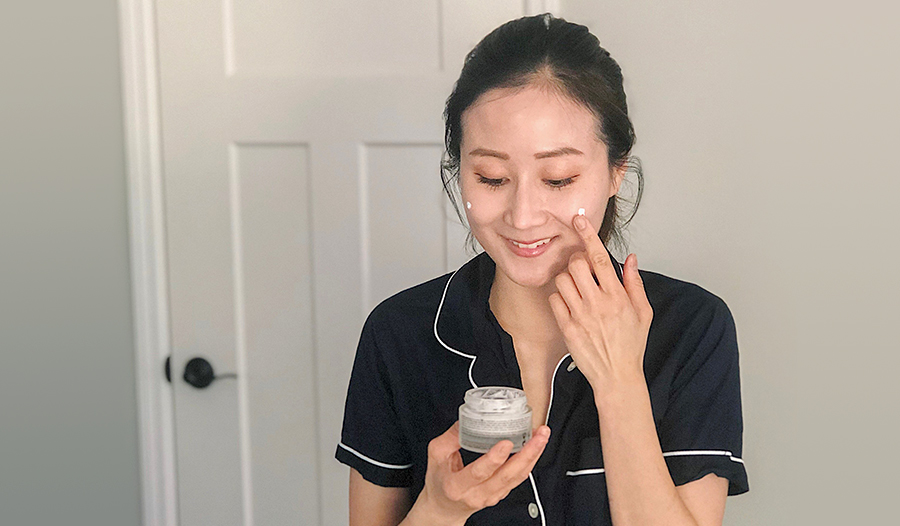
Se chiedi a qualsiasi dermatologo quali sono i suoi consigli sui prodotti indispensabili per la cura della pelle, la risposta sarà sicuramente "retinoidi". Oltre alla protezione solare, i retinoidi sono probabilmente l'unico prodotto di cui tutti ci vantiamo. Quindi, cosa sono i retinoidi? Qual è la differenza tra i prodotti retinoidi e come devono essere utilizzati per ottenere i massimi benefici? Oggi parleremo di questo santo graal anti-invecchiamento.
Cos'è il retinolo?
I retinoidi sono una classe di composti derivati del beta-carotene, noti anche come vitamina A. La vitamina A è un composto essenziale necessario all'organismo per mantenersi sano e funzionale. Inoltre, svolge un ruolo importante non solo per la pelle ma anche per lo sviluppo di altri sistemi di organi, come gli occhi e i vasi sanguigni. La forma attiva dei retinoidi è l'acido retinoico. Questa struttura si forma attraverso il metabolismo del nostro corpo o della pelle. A livello molecolare, i retinoidi svolgono la loro funzione attivando o disattivando determinati geni attraverso il recettore dell'acido retinoico all'interno delle cellule.
Diverse forme di retinolo
Esistono varie forme o metaboliti dell'acido retinoide: il retinolo, la retinaldeide, gli esteri di retinile e infine l'acido retinoico, che è la forma biologicamente attiva. Questi tipi di vitamina si trovano nel nostro organismo in varie fasi del metabolismo della vitamina A e in diversi prodotti.
Retinoidi orali
Esistono alcune forme di retinoidi orali, per lo più disponibili in ambito medico per il trattamento di varie patologie. La più comune è l'isotretinoina, che viene comunemente prescritta dal dermatologo per il trattamento dell'acne nodulocistica grave. Questo farmaco da prescrizione agisce diminuendo le dimensioni delle ghiandole sebacee (olio) ed esercitando effetti antinfiammatori per ridurre indirettamente la carica batterica coinvolta nell'acne.
Anche se gli studi sui benefici dei retinoidi orali per l'antiaging sono limitati, ci sono alcuni dati preliminari che suggeriscono che possono essere utili. In commercio esistono anche retinoidi da bere.
Tuttavia, i retinoidi orali comportano dei rischi. Quando i soggetti assumono isotretinoina, vengono sottoposti a esami di laboratorio di routine per valutare la presenza di anomalie epatiche e lipidiche. Non consiglio di ingerire dosi elevate di vitamina A per via orale o di retinoli da bere per ottenere benefici per la pelle.
Retinoidi topici
I retinoidi topici sono uno degli ingredienti più studiati per contrastare l'invecchiamento. Sono davvero il Santo Graal, nel senso che studi multipli e riproducibili ne dimostrano i benefici per quanto riguarda il miglioramento dell'acne, dei danni solari, delle linee sottili, delle rughe e del colorito generale quando vengono applicati direttamente sulla pelle. Inoltre, i retinoidi possono essere combinati con altri ingredienti, come gli agenti schiarenti, per migliorare l'aspetto dell'iperpigmentazione. I retinoidi topici sono disponibili in varie forme per uso personale, tra cui le formulazioni su prescrizione, quelle da banco e quelle per uso medico.
Come scegliere un retinoide topico
Quindi, quale retinoide topico dovresti usare? Dipende dalle tue esigenze e dal tuo tipo di pelle.
I retinoidi da prescrizione sono più forti ma anche più efficaci per l'acne e l'antinvecchiamento. Il retinoide più comunemente prescritto è la Tretinoina in crema, che ha diversi dosaggi. La tretinoina è il retinoide più studiato per i suoi effetti anti-invecchiamento. Funziona anche per l'acne, liberando i pori e diminuendo l'infiammazione e la produzione di sebo. Altre forme di prescrizione includono Adapalene e Tazarotene. Sebbene sia stato maggiormente studiato per i suoi effetti sull'acne, alcuni studi suggeriscono che l'Adapalene possa essere utile per il fotoinvecchiamento. Il tazarotene è un retinoide molto più forte. È più spesso prescritta per le condizioni mediche della pelle, ma può essere utilizzata come la tretinoina per trattare l'acne e molto probabilmente per migliorare il fotoinvecchiamento.
Le forme di retinoidi che non richiedono la prescrizione medica sono disponibili al banco soprattutto sotto forma di retinolo, esteri di retinile o retinaldeidi. Questi funzionano maggiormente per l'invecchiamento e sono meno efficaci per l'acne. Poiché questi metaboliti devono essere convertiti nella forma attiva, sembrano essere meno irritanti delle forme prescritte.
Effetti collaterali dei retinoidi
Secchezza della pelle, arrossamento, desquamazione e bruciore sono gli effetti collaterali più comuni dei retinoidi topici.
I retinoidi non devono essere utilizzati insieme ad alfa-idrossiacidi o beta-idrossiacidi come l'acido glicolico o salicilico. Questi causano un'irritazione eccessiva. Raccomandando anche di usare un'esfoliazione più delicata quando si usano i retinoidi e di limitarla a non più di una o due volte alla settimana o addirittura a un paio di volte al mese, a seconda della sensibilità della tua pelle. Il perossido di benzoile è un altro ingrediente comunemente usato per trattare l'acne. Può causare secchezza e bruciore della pelle. Le persone con pelle sensibile e secca potrebbero voler evitare di utilizzare i due ingredienti insieme.
Consigli per i principianti
Poiché la secchezza e l'irritazione sono gli effetti collaterali più comuni, ti consiglio di iniziare lentamente con i retinoidi la sera. Dovresti prendere in considerazione l'utilizzo di un prodotto da banco a base di retinolo, come una crema o un siero. Applicare una quantità pari a un pisello su tutto il viso. Se utilizzi un siero, devi anche seguire un buon idratante. Se hai la pelle sensibile o secca, ti suggerisco di iniziare con una o due volte alla settimana e poi aumentare lentamente fino alla sera, a seconda della tolleranza. Se hai difficoltà a stendere una quantità pari a un pisello su tutto il viso, puoi anche mescolarla alla tua crema idratante per facilitarne l'applicazione. Puoi applicare una crema idratante prima e dopo i retinoidi per limitare ulteriormente la secchezza: questo non interferirà con la loro efficacia.
I retinoidi sono molecole altamente instabili e possono essere facilmente degradati dalla luce ultravioletta e ossidati. Per questo motivo, sono consigliati solo per l'uso notturno. Alcune delle nuove generazioni di retinoidi e retinoli sono più stabili alla luce, ma ti suggerisco comunque di usare questi prodotti la sera perché potresti voler approfittare della tua routine mattutina per applicare altri antiossidanti o principi attivi che potrebbero interagire con i retinoidi o rendere la tua pelle troppo irritata se usati insieme.
I retinoidi non dovrebbero essere applicati sulle palpebre perché potrebbero causare una terribile dermatite palpebrale. Puoi invece cercare creme per gli occhi contenenti retinoli, in quanto sono formulate appositamente per la zona palpebrale e sono meno irritanti.
Come puoi vedere, i retinoidi sono un must per una pelle giovane e dall'aspetto sano. E ricorda che non è mai troppo tardi per iniziare a usarlo. Come sempre, se hai domande o dubbi sulla cura della pelle, parla sempre con il tuo dermatologo certificato.
ESONERO DI RESPONSABILITÀ:Questo Centro Benessere non intende fornire diagnosi...

















































































 Indice
Indice



